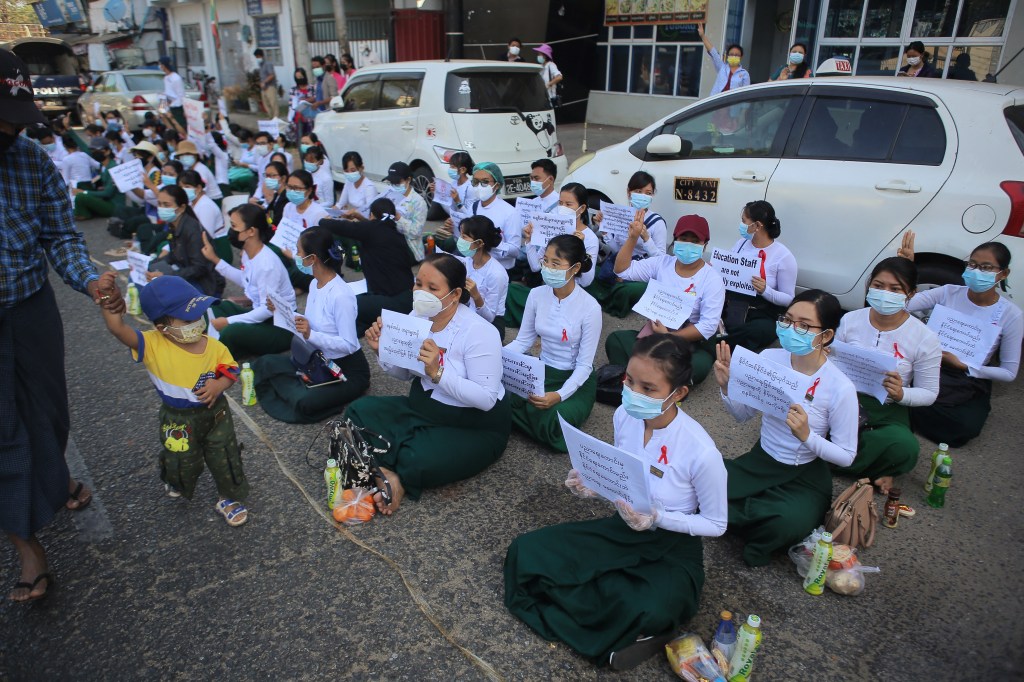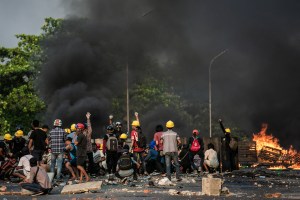Soldiers occupying schools, teachers beaten, and military-imposed internet blackouts making distance learning impossible—Myanmar’s already fragile education system is under siege since the Feb. 1 coup, raising fears of a lost generation.
Zoom classes, closed campuses, and distance education have been the norm for much of the world throughout the pandemic, forcing a virtual education overhaul in programs from preschools to universities.
Videos by VICE
The disruptions, however, were more severe in developing countries like Myanmar, which recorded its first coronavirus case exactly a year ago Tuesday. The Southeast Asian country stopped in-person classes during the pandemic, but schools largely ceased programs entirely with no online replacement.
For students who managed to continue degree programs abroad with virtual lectures, the coup has made it extremely difficult to keep going. In what’s being called a “digital dictatorship,” the junta forced telecommunications companies to enforce nightly internet blackouts, restricted mobile data during the day, and blocked publicly available Wi-Fi connections.
Security forces also terrorize neighborhoods with surprise raids and arrests, smashing the peace and quiet required for focus and study.
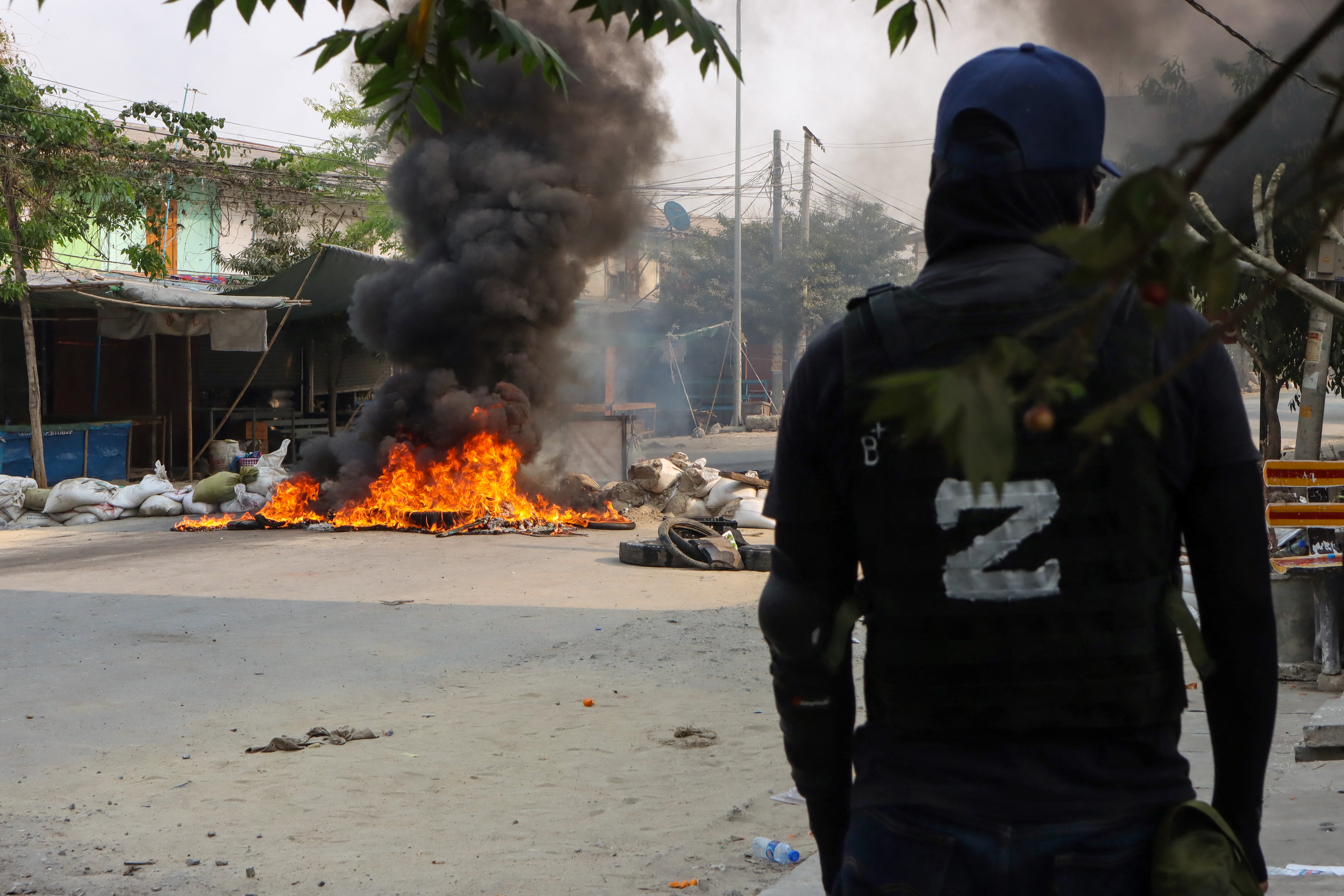
Because the internet is down nationwide from around 1 a.m. to around 6:30 a.m., students taking classes in the United States, the United Kingdom, and Australia often have no chance to attend in real time, and miss out completely if lectures are not recorded.
A student from Myanmar in her final year of a mechanical engineering degree at a major university in California said she could not attend her virtual labs as they happened after the internet went down at home, where she returned last summer.
“Some professors were more lenient with deadlines than others, but it became impossible to do my senior projects,” the 23-year-old told VICE World News. Like many students interviewed for this article, she did not want to be identified out of fears for personal safety.
“Some professors were more lenient with deadlines than others, but it became impossible to do my senior projects.”
The coup has forced her to make difficult and—with U.S. school costs—expensive decisions about her future. “I eventually decided to take a gap year, which cost my family one academic quarter’s worth of tuition. It wasn’t an easy decision to make. I’m sure there are many students like me in Myanmar.”
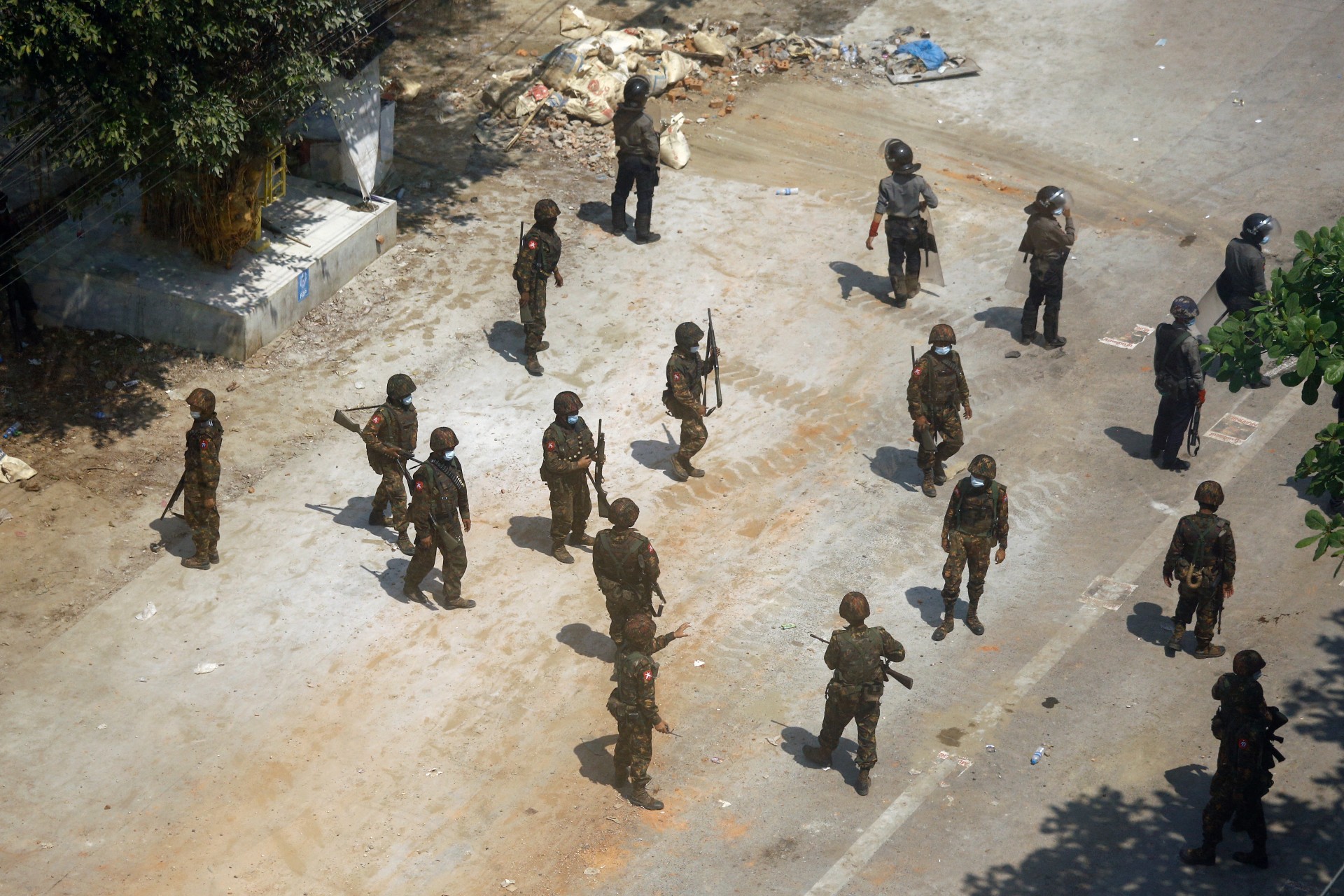
Their plight surfaced last week when a Canadian university said it was taking “appropriate actions” against a faculty member who berated a Myanmar student for requesting an exam deferral because of the coup. The email exchange between the mathematics and statistics lecturer at York University in Toronto went viral on Twitter.
The university confirmed to VICE World News that the instructor has been removed from teaching the course, but declined to specify what action it had taken against him, citing employment policies. It also said it had accommodated the student’s request after the uproar. The instructor has not replied to a request for comment.
While the student in the viral email exchange could not be reached, the experienced resonated with several others dealing with the same issues.
One 22-year-old who is doing her final year of study online at a large UK-based university said even when she has an internet connection in Myanmar, it is too slow. Then there are the basic security concerns of everyday life and the mentally exhausting challenge of following local news about deaths and arrests.
“My family thinks that we should relocate somewhere because they believe a war is imminent,” she said. “Balancing studies and current issues is a challenge. Twitter is sometimes very draining.”
Another student taking online courses at a university in Australia described getting disconnected from Zoom lectures, which could not be recorded properly because of different breakout discussion rooms. The school has advised her to apply for a leave of absence.
“My family thinks that we should relocate somewhere because they believe a war is imminent,” one student said. “Balancing studies and current issues is a challenge.
More than 260 people have been killed and an estimated 2,682 people arrested since soldiers detained the leaders of the civilian government in pre-dawn raids last month, plunging the country back into military rule after a decade of halting democratic gains. The power grab sparked nationwide protests, some of which were initially started by teachers worried about the direction of the country.
Myanmar once had one of the top education systems in Asia, but it was snuffed out under successive military regimes from 1962 to 2011. Reforms launched a decade ago helped boost funding and resources toward neglected schools, and an ambitious, years-long national education plan was launched by leader Aung San Suu Kyi when she came to power in 2016, though access remained limited for ethnic minorities. Suu Kyi is now under house arrest.
The state of education under the junta is no better for those at schools located in Myanmar. Soldiers and police have occupied more than 60 schools and university campuses across the country, according to a March 19 joint statement from United Nations agencies and the global non-profit Save the Children. Security forces also beat and injured teachers when entering some premises, the statement said. The military claims it is trying to restore stability.
The move has exacerbated pandemic-linked obstacles to education in place well before the coup. An estimated 10 million children in Myanmar have been out of school for the last year, according to Hassan Noor Saadi, regional director for Save the Children. The majority did not have access to alternative courses or virtual classes.
“There is every chance that the new political reality will have a further negative impact on students of all ages, whether by prolonging school closures or by threatening the mental and physical safety children need to learn,” Saadi told VICE World News. “The violent crackdown on peaceful protesters by security forces has been traumatizing for children, for those who have taken to the streets or who watched from afar.”
“There is every chance that the new political reality will have a further negative impact on students of all ages, whether by prolonging school closures or by threatening the mental and physical safety children need to learn.”
Experts also worry that education will once again take a back seat if the junta cements its grip on power over the long run.
“I fear that the military would reduce expenditures on education and revert to using schools mostly to disseminate propaganda and discourage dissent,” said Rosalie Metro, an assistant teaching professor at the University of Missouri-Columbia who has researched Myanmar’s education system.
Metro added, however, that the crackdown may have inadvertently opened the eyes of the public to what the armed forces have been doing in remote areas for decades.
“This coup has shown many Burman Buddhists what the military regime’s textbooks, with their fairy tales of a happy and peaceful nation, have been trying to hide: that the army is brutal, and that ethnic and religious minorities have been enduring this brutality for years.”
For Myanmar students enrolled remotely, the ease or difficulty of studying can depend entirely on the particular school or professor.
One 18-year-old said he was studying remotely online at a college in California and that he had trouble submitting his assignments due to frequent internet outages.
“When I mentioned the military coup and problems I am facing here, most of my professors replied with a ‘sorry to hear that.’ Most of them told me to withdraw from the class which is basically a few thousands dollars down the drain,” he said.
But one professor did help, excusing him from the main workload in a class while not penalizing late submissions. The school also reached out to him to check up on his well-being.
“I guess it mostly depends on who you’re dealing with,” he said.
More
From VICE
-

Photo by Greg Mathieson/Shutterstock -

Leavenworth Penitentiary in Kansas. Photo by Kevin McKiernan/ZUMA Press Wire/Shutterstock. -

Joseph Couch via Laurel County Sheriff's Office. -
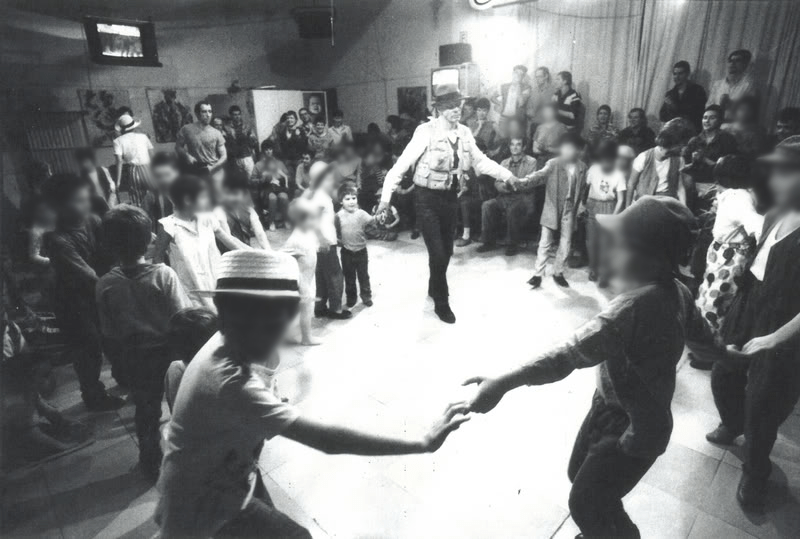
Children at the Friedrichshof Commune dance with renowned artist Joseph Beuys. Inka, aged four, holds his right hand.
